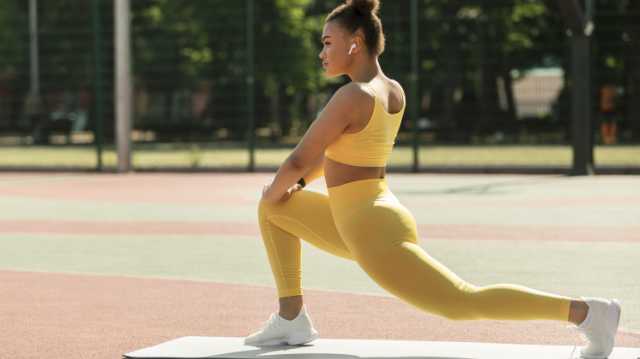
Knee pain has a way of reminding patients of its presence at regular intervals throughout the day. For many individuals that are affected, knee pain is the first thing they notice upon waking up in the morning, and it is often felt during many daily activities—like walking up stairs, getting in and out of a car, and bending down to pick up items—until bedtime.
Some patients may respond to knee pain with what might sound like a logical solution: try to move the painful knee as little as possible to avoid further pain and aggravation. This approach may seem sensible, but in truth, it will more harm than good. Limiting your knee movement equates to less overall mobility, and with that comes reduced flexibility and weaker muscles surrounding the knee. This will in turn lead to an increased risk for injuries and other problems in the future if the behavior continues.
Instead, the goal should be to focus on keeping the knee mobile and increasing the strength of the muscles that surround the knee, particularly the quadriceps (muscles in front of the thigh), hamstrings (muscles in the back of the thigh), and the gastrocnemius (one of the calf muscles). Strengthening these muscles will lead to better support and stability of the knee joint, which is fundamental for overcoming knee pain. With this in mind, we strongly recommend the following exercises to treat and prevent knee and thigh pain:
Our top 4 exercises for knee and thigh pain
- Sit to stand transition
- Sit toward the edge of a chair with good posture
- Tighten your abdominal muscles
- Shift your weight slightly forward and stand up
- Slowly lower back to starting position
- Repeat for 2 sets of 12 repetitions, once every other day
- Step ups (forward)
- Start by standing straight with a step—or similar object—in front of you
- Step up onto the step—or object—while keeping your knee lined up over the middle of your foot
- Repeat for 2 sets of 12 repetitions, once every other day
- Step ups (lateral)
- Start by standing straight with a step—or similar object—in front of you
- Step up onto the step—or object—while keeping your knee lined up over the middle of your foot
- Return to the starting position
- Repeat for 2 sets of 12 repetitions, once every other day
- Forward Lunge
- Start by standing up straight
- Lunge forward, making sure to keep your knee lined up over the middle of your foot
- Return to the starting position
- Repeat for 2 sets of 12 repetitions, once every other day
By regularly performing these four exercises, you’ll gradually improve your strength, flexibility, and balance. As a result, these improvements will help alleviate any knee or thigh pain you’re experiencing, boost your overall physical function, and reduce your risk for future issues. But for knee or thigh pain that persists after committing to these at–home exercises, your next step should be to see a physical therapist. Read our next two posts for a several examples that show why physical therapy is the best choice for most cases of knee and thigh pain.
